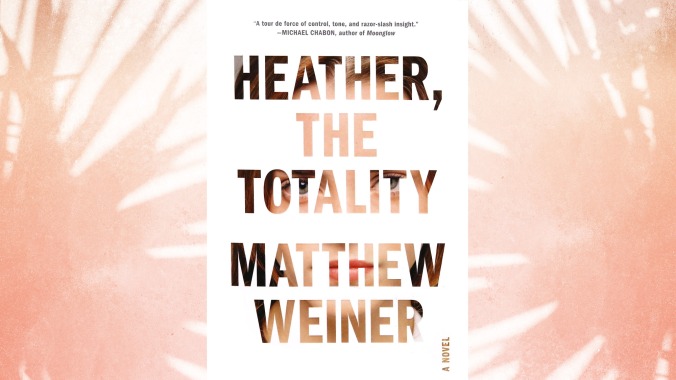The first novel from Mad Men creator Matthew Weiner is perplexingly bad

The Heather of Heather, The Totality is the daughter of Mark and Karen Breakstone, an unhappily married couple originally drawn together by his stability and her beauty. (She is “glaringly mismatched to his ugliness.”) Despite her parents’ loveless marriage, Heather grows up to be an intelligent and precocious child, able to reduce grown women to tears on the subway with her youthful insights, and an expert wielder of the emotional shiv against her mother. She also grows up beautiful, and as a teenager attracts the dangerous and very adult attention of Bobby, a newly released convict who develops an obsession with the girl while renovating the Breakstone’s brownstone.
This is the set-up to the peculiar first novel by Mad Men creator Matthew Weiner. Peculiar because its most obvious flaws, which reinforce the sense that it is an undercooked and tossed-off experiment, were clearly by design. Heather is written almost like an epic prose poem, with every incident, thought, or description confined to a micro-paragraph, with a hundred or so of these composing each of the five short chapters (the whole book can be read in the span of about an hour). Throughout the entire book there’s scarcely a single exchange of dialogue, where one person says someone and someone else responds. Calling it sparse would be an understatement.
The stylistic and thematic forebears seem to be Richard Yates and John Cheever, —and also Weiner’s touchstones for the story of Don Draper—although neither of them were ever this awkwardly pulpy, and Weiner’s Raymond Carver-on-crack style (which is to say, Raymond Carver on sedatives) reads like minimalistic realism stretched to the point of parody.
This is all in contrast to something like After The Fall, another recent example of a showrunner (Fargo’s Noah Hawley) turning to novels from novelistic series. That book, whatever its flaws, bore the fingerprint of its creator with distinct characters and focused plotting. Were one to write out a list of attributes that defined Mad Men—nuance, subtlety, complexity of character, an ability to convey its people and its setting through small gestures and details—Heather is the antithesis of that list. This is so completely true that it has to have been a deliberate decision, even if it wasn’t a successful one.
 Keep scrolling for more great stories.
Keep scrolling for more great stories.
